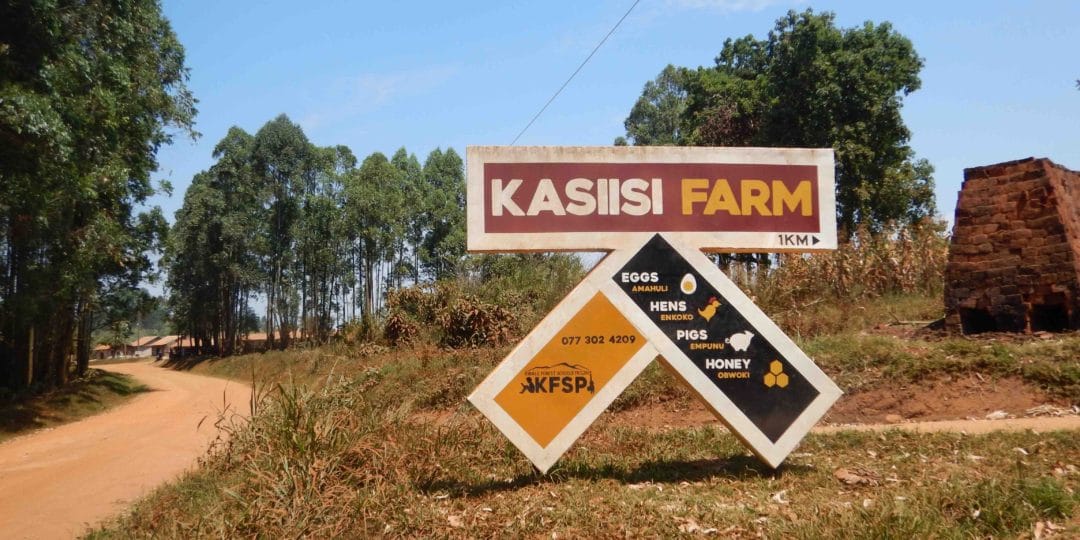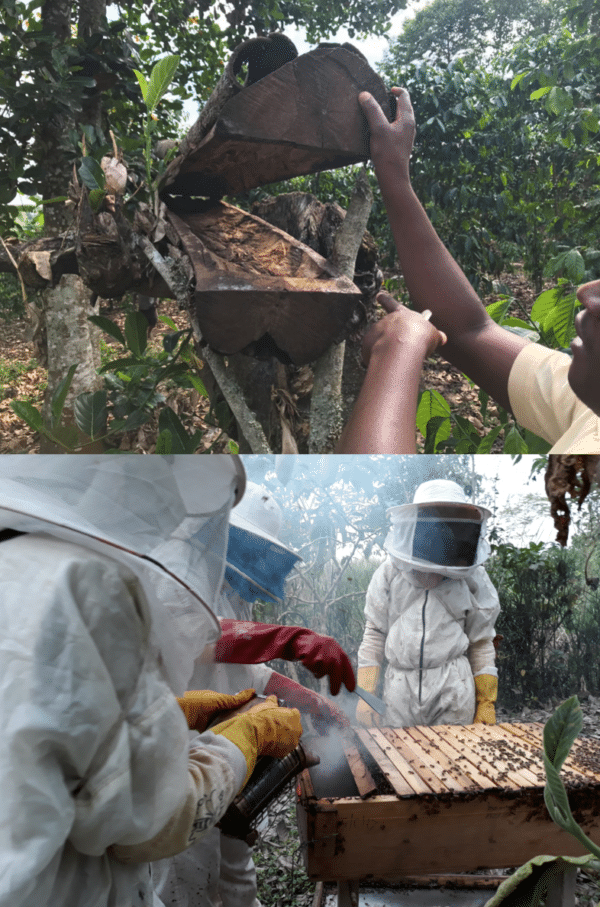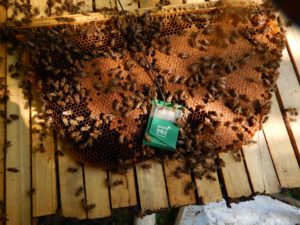Beekeeping in Uganda with the Kasiisi Project
by Marianne Staniunas

It’s August of 2015, I’m a passenger in a weathered but solid Toyota 4×4 truck. Elizabeth Ross, Executive Director of the Kasiisi Project, steers up steep dirt roads that overlook stunning muted green vistas of the late-dry-season in rural western Uganda. When we reach the Kasiisi Project Farm the farm’s “guard dog,” Police, almost jumps into the car to greet us. She trails us as we meander past matoke and maize, pig and chicken houses, to the 10 or so colonized hives of the newly-established apiary.
Six honey seasons later we have more than 40 healthy colonies, an established bee monitoring program, a honey processing room, and a growing base of honey customers later. The hope and excitement we felt for our beekeeping prospects then has only grown.
What is the Kasiisi Project?
Since 1997, the Kasiisi Project has aided education in and around Kibale National Park in rural western Uganda, East Africa. Founded initially as a link between the research-based Kibale Chimpanzee Project and the local community, we now work with several research groups in and around the park to target critical issues for the survival of the forest and support of the local population.
We support early childhood education, promote conservation education, provide daily school lunches, train teachers, encourage literacy, address the special needs of girls, and more. The project works with 16 schools hosting 10,000 primary school children.
Kasiisi also runs a small farm where we model sustainable farming practices for other farmers in our community, while generating revenue to support the farm itself.
Ugandan Beekeeping
Beekeeping has been a part of agriculture in Uganda for generations; mostly through the use of traditional basket or hollowed-log hives. Increasingly, however, farmers are gaining access to and learning to build and manage Kenya Top Bar (KTB) hives. KTB hives of course have the advantage that farmers can harvest honey and other bee products from them without destroying the hives or severely disturbing the bee colonies, unlike some older methods.
Our hopes for our farm apiary are aligned with our goals for the farm overall, with the added benefit of supporting the health of a pollinator critical to the whole ecosystem.
It has taken several years of steady effort on the part of our Ugandan farm staff, beekeepers, and devoted volunteers, for our apiary to begin to thrive. We now are productive and planning to expand our project to loan hives and offer training to other neighboring farmers. Our honey processing capabilities allow us to purchase raw comb honey from our neighbors, which we process and sell, benefiting the Project and our neighbors!

Bottom: Beekeepers check a Kenyan Top Bar colony
Using Bees for Science
Starting in the summer of 2018, we embarked on a data collection project successfully adapting BroodMinder™ temperature/humidity devices for use in our KTB hives. We have been recording temperature and humidity data continuously from multiple hives in our apiary since then, saving and sharing this data for analysis on BroodMinder’s open access Cloud site.
As the only users of the devices in Africa we are uniquely positioned to collect information about wild African honeybees, about which little is known, and to understand the impact of climate change on them over the long term. In 2019, we will expand our data collection to other hives across our agricultural area, and along the forest boundary.
We have an ongoing partnership with a community of forest edge beekeepers who use beehives to deter elephant crop raiding and will work with them to outfit their hives with BroodMinder-TH devices to gather data in a different habitat. In addition to collecting temperature and humidity data, we plan to begin measuring hive weight and investigating forage plants through analysis of honey pollen and on the ground observation. We will generate a robust body of data that we can analyze and share with other researchers and bee-enthusiasts throughout the world.

Marianne Staniunas is a bee volunteer for the Kasiisi Project. More information on their bees, and other projects, is available on their website and Facebook page.